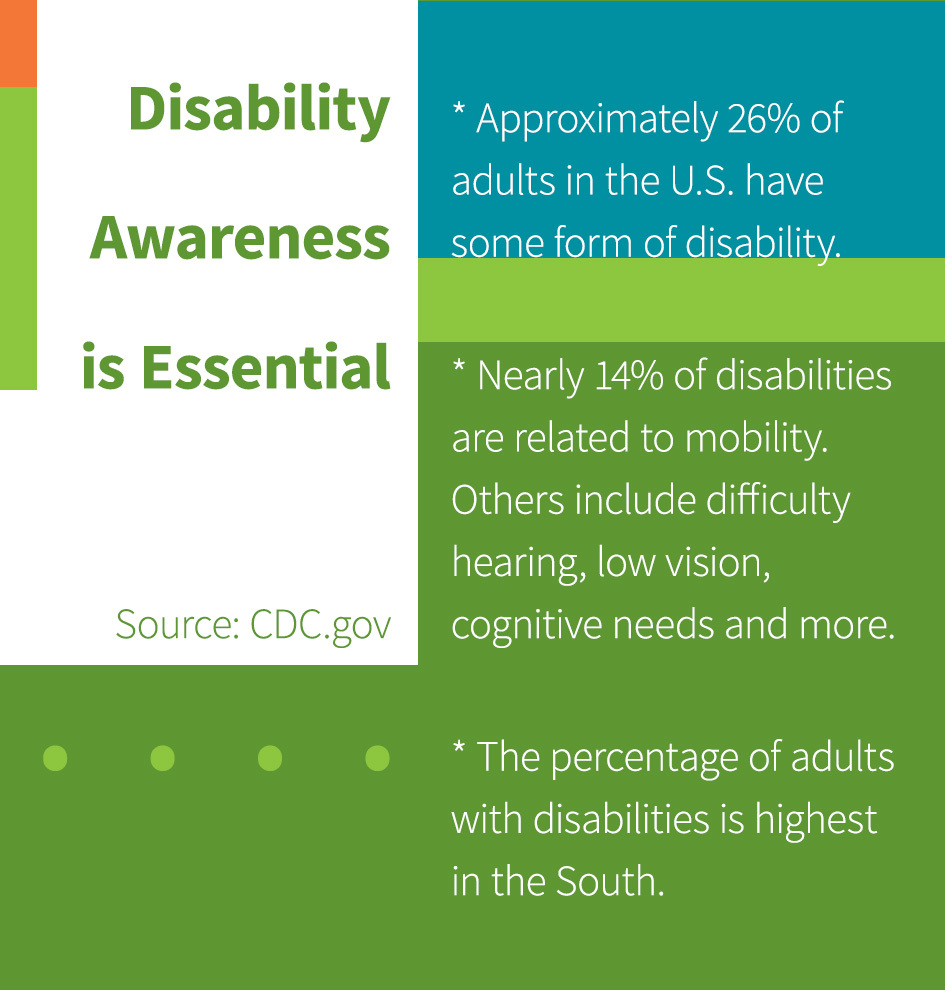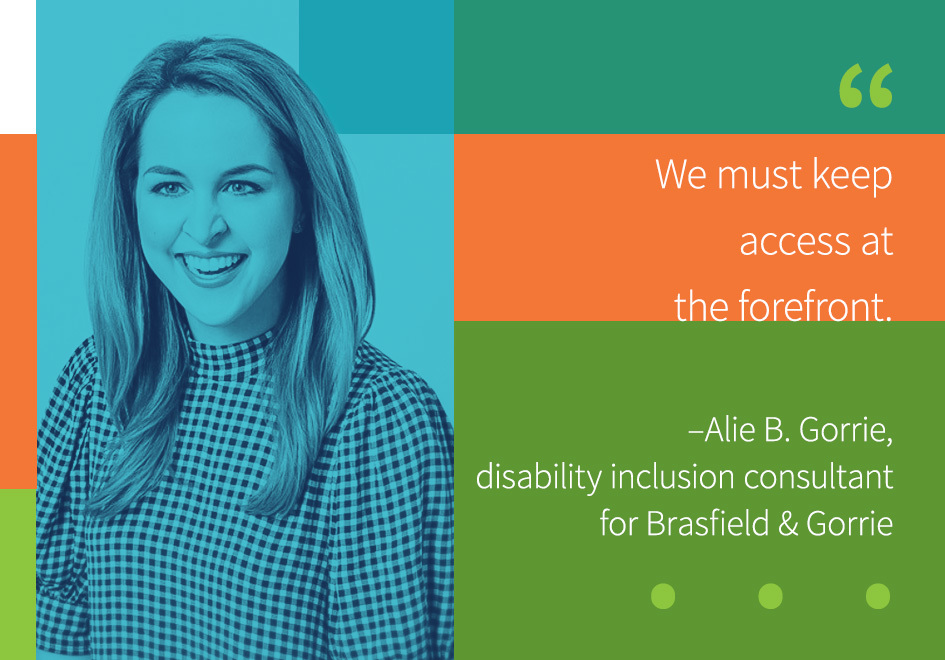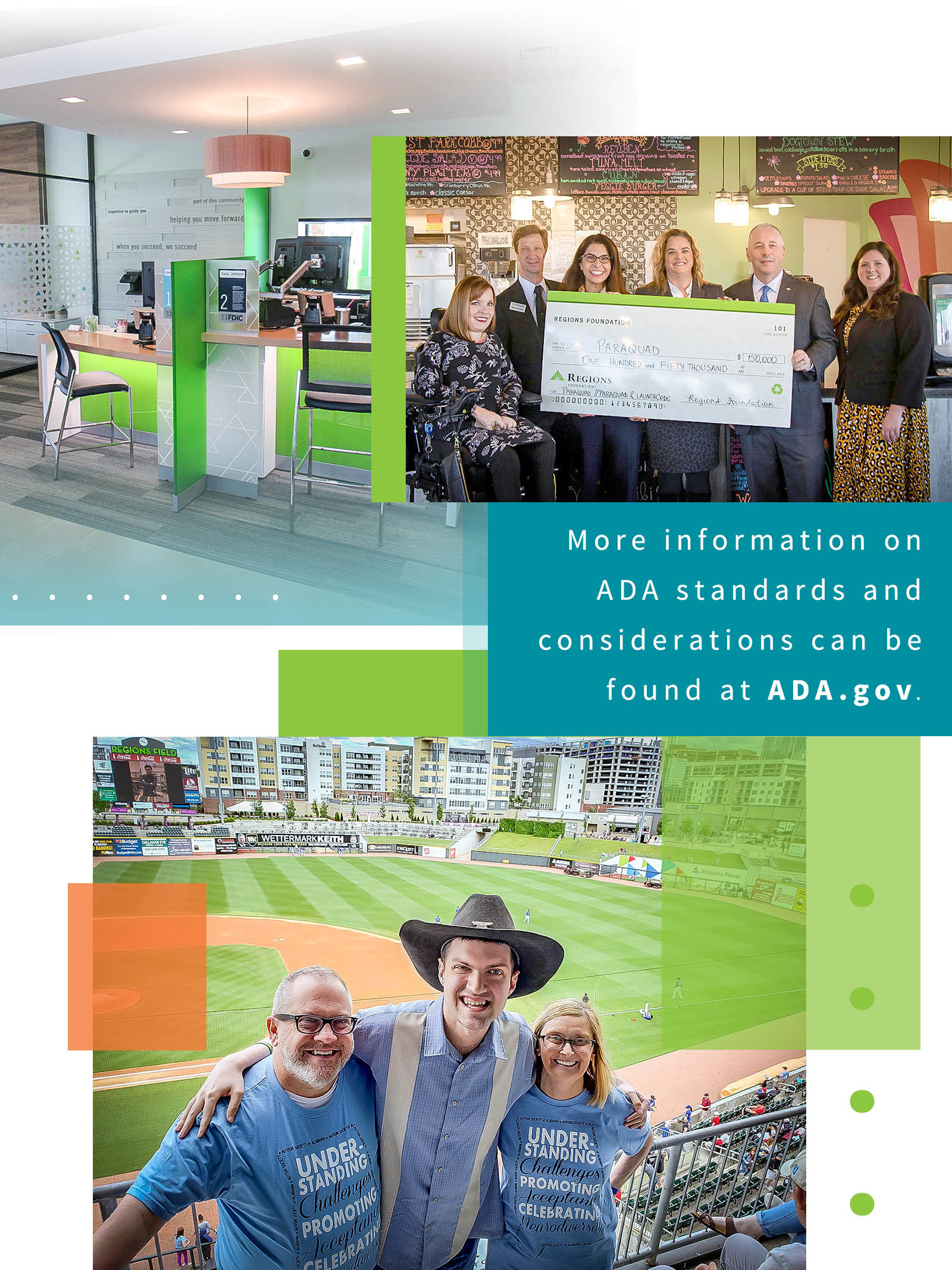Thirty years. One purpose.
“We overcome obstacles,” said Yolanda Turner.
Turner is a go-to source for guidance on the Americans with Disabilities Act. The landmark legislation, now 30 years old, made it possible for more people to access more places. The ADA is about empowerment and reaching goals unencumbered, refusing to be defined or held back by a disability.
As Inclusion and Diversity manager for Encompass Health, Turner joined dozens of associates from Regions Bank and other Birmingham-based employers during a series of candid, thought-provoking and even challenging virtual discussions coinciding with the 30th anniversary of the ADA. The focus – highlighting progress since 1990 while stressing the need to keep moving forward.
“We as human resources and diversity and inclusion leaders in our organizations have a lot of work to do to advance disability inclusion for the greater good of our companies,” Turner shared. “The diverse culture of our employees, including people who have disabilities, helps us better reach the diverse range of people we serve.”

Kathy Lovell, Disability Services and Outreach Manager for Regions, agrees. A consistent focus on the ADA is not only a best practice, it’s what’s best for business.
“There’s a difference between being ADA compliant and ADA friendly,” Lovell explained. “ADA compliant means you meet the minimum standards. But our focus at Regions is on being ADA friendly. That means being intentional and ensuring our services and locations are accessible for all.”
Disabilities go beyond the physical. Many are unseen.
So during the virtual sessions, people got a glimpse at what others are going through.
There was a simulation, led by the Alabama Department of Rehabilitation Services, of how attention deficit hyperactivity disorder can cause overstimulation. There was guidance on how to relate to people with disabilities, without making them feel awkward. And there was encouragement to make sure companies aren’t just paying lip service to disability awareness and accommodations.

“Whenever I speak on disability inclusion, I tell folks, ‘Once you know about accommodations or disability etiquette or accessibility best practices, you cannot un-know,’” said Alie B. Gorrie, a disability inclusion consultant who serves on the Corporate Responsibility team at construction firm Brasfield & Gorrie. “We must all continue the work of ‘minding our mindset,’ meaning we must keep access at the forefront. Are you adding accommodation requests to meeting invites? Do you have an access or inclusion plan or statement for your organization? Do you know the ins and outs of web and videoconferencing accessibility?”
The key, Gorrie said, is to consistently evaluate how all parts of a company’s operations relate to people with disabilities. Then, disability inclusion becomes embedded in how people think, act, recruit and serve.
This leads to innovations beyond the original provisions of the ADA. More recent examples include descriptive video services, which helps people with low vision better conceptualize what is taking place on a screen. Also, captioned videos are increasingly common as more content producers recognize the need to reach people with hearing loss.

Clara Green, head of Diversity and Inclusion for Regions Bank, said the virtual sessions led to greater awareness of what other employers are doing. But, more than that, they served as a call to action among corporate peers to identify where more progress can be made.
“When we think about diversity, equity and inclusion, we often think about making sure there’s a seat at the table for people who don’t look like us,” Green said. “It’s important to make sure we’re thinking about people who have different abilities than us, too. It’s too late to think about accommodations at the moment they are needed. Let’s think instead about how we can create a welcoming environment now for our customers, our colleagues and the people we can welcome into our places of business in the future.”
The conversations brought to mind a discussion Green led at Regions’ headquarters in 2019. Author David Cooks, who lost the ability to walk when he was a teenager, shared how he has overcome many obstacles in the decades since.
“In terms of making people’s lives better and more functional, I think we’ve come a long way,” Cooks said, regarding the ADA. “I think the next step, now that I can get in the bathroom, is to figure out how to get in the boardroom.”
Indeed, Turner said more employers must recognize how disability inclusion adds value to business strategies, and people who have disabilities are well qualified to fulfill roles of great importance to any organization.
“We encourage talent acquisition professionals to directly partner with the disability community,” Turner concluded. “There are resources available to you. Leverage their insights to strengthen your organization while advancing disability inclusion. An organization like the Alabama Department of Rehabilitation Services is a great place to start. They help employers identify and recruit more qualified people with disabilities – while also helping them create a more welcoming, and more productive, workplace.”

Bring Your Whole Self to Work
Regions has a passion for creating an inclusive environment that promotes and values diversity of race, color, national origin, religion, age, sexual orientation, gender identity, disability, veteran status, genetic information, sex, pregnancy, and many other primary and secondary dimensions that make each of us unique as individuals and provide valuable perspective that makes us a better company and employer. More importantly, we recognize that creating a workplace where everyone, regardless of background, can do their best work is the right thing to do.
OFCCP Disclosure: Equal Opportunity Employer/Disabled/Veterans